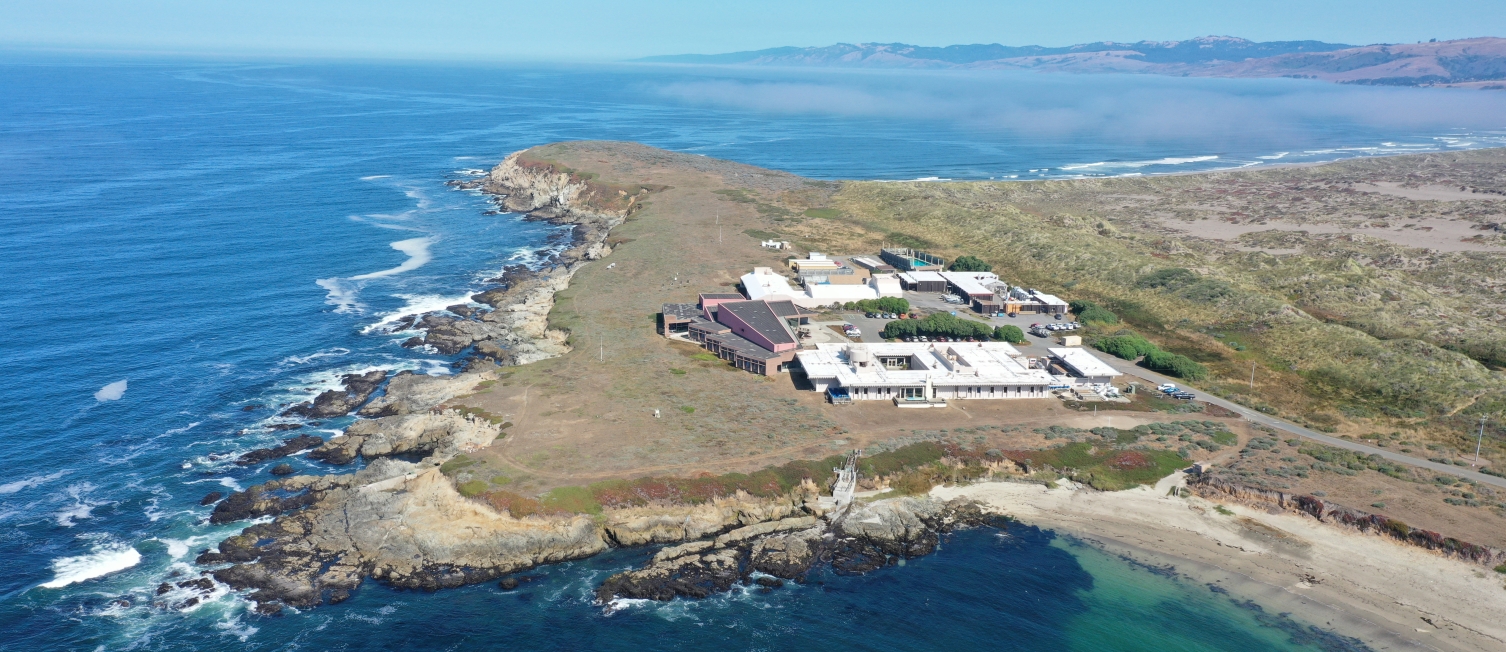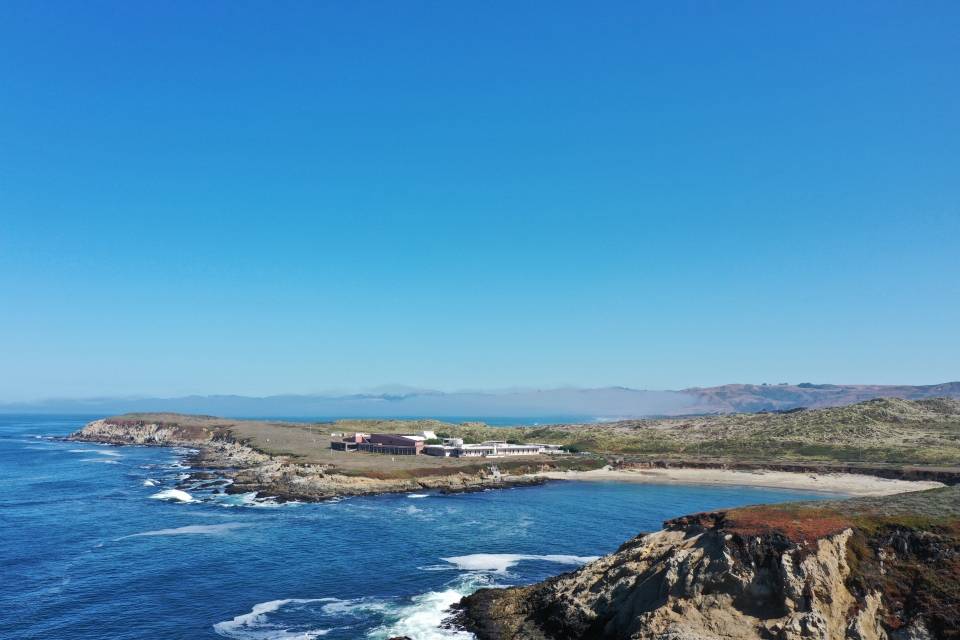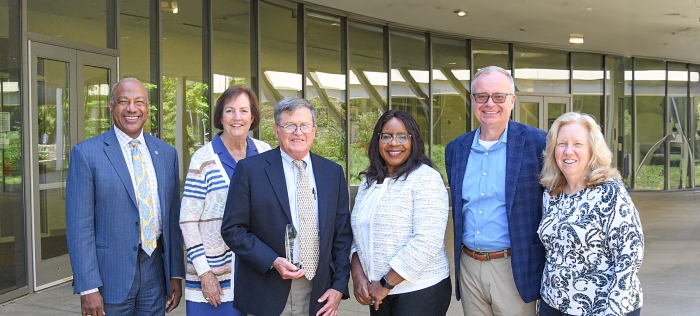
Protecting ocean health in a warming world
At the UC Davis Bodega Marine Laboratory (BML), ocean water streams in through crisscrossing pipes, sea creatures crawl in bubbling tanks, panoramic windows show views of the ocean—and students, faculty and staff are making crucial discoveries for ocean and coastal health.
“The seawater system is really at the heart of the lab,” said BML Associate Director Kristin Aquilino, M.S. ’10, Ph.D. ’11. “You walk in, and you can see and hear the lifeblood of the Bodega Marine Lab flowing all around you.”
For more than 50 years, the core research facility of the UC Davis Coastal and Marine Sciences Institute has provided a front-row seat for experts from different disciplines to study the impacts of climate change and human activity on the ocean, inform solutions to complex challenges and provide hands-on education for students and the public.
“Everything we do here is to understand the ocean better in California and throughout the world,” said BML Director John Largier, professor of coastal oceanography. “Improving ocean health needs integrative studies that can be woven together into a big-picture perspective.”
With the support of donors, BML is renovating its learning facilities and expanding opportunities to keep working toward a sustainable future for the ocean and coast.
Solutions for California and beyond
Half a million gallons of seawater are pumped through the facilities every day, providing opportunities for studies that address challenges such as rising sea levels, disease and pollution.
“Bringing the ocean inside allows us to investigate what's happening out there now and what might happen in the future because we can manipulate conditions to mimic a changing environment,” said Aquilino.
Home to one of the most productive coastal ecosystems in the world, northern California waters are threatened by global warming, deoxygenation and acidification in addition to changes caused by local human activity. Surrounding BML, the 362-acre Bodega Marine Reserve stewards protected lands and waters for research and education.
“The lab and reserve give us access to these beautiful natural ecosystems to study from and teach students about, but we’re seeing these ecosystems change right before our eyes,” said Eric Sanford, a professor of evolution and ecology who has taught at BML for almost 20 years.
One of the major environmental threats that Sanford studies is ocean acidification. About 30% of the carbon dioxide added to the atmosphere by human activities has been absorbed by oceans, causing changes in water chemistry that are particularly dangerous for shellfish, corals and species like sea urchins and abalone.
The lab’s many research programs span a wide range of areas, including climate change, oceanography, aquaculture, disease, toxicology and restoration.
“One of the strengths of UC Davis is that we do research aimed toward informing solutions,” said Sanford. “We focus on what changes are taking place and how those changes potentially impact the important natural ecosystems that we rely upon for California recreation and coastal fisheries.”

Growing with donor support
Built in the 1960s, BML is fundraising to renovate classrooms and modernize lab infrastructure—including large aquarium tanks and high-tech environmental sensors—so that students and faculty have access to state-of-the-art spaces and data for their research.
“Donor support is essential to helping us keep a finger on the pulse of the ocean,” said Largier. “The Bodega Marine Lab is like a mini campus by itself: We provide amazing learning opportunities for students in addition to being a top-tier research institution that is engaged with government agencies and local communities.”
Another unique feature of the lab is an on-site residence for visiting faculty, scholars and students. Donor funds can advance visits and collaborations through making this visitor housing more affordable.
“The ability to stay here is critical when conducting research that requires one to be in the field monitoring day and night or over tidal cycles, as well as when conducting experiments in tanks at the lab,” said Largier.
Funding graduate students and postdoctoral researchers and increasing community engagement are other key areas where the lab is looking for support to advance interdisciplinary discoveries in marine science.
“The lab plays a critical role in addressing the impacts of climate change on the ocean and coast, here and globally” said Largier. “There are many opportunities for donors to help us in this work.”


